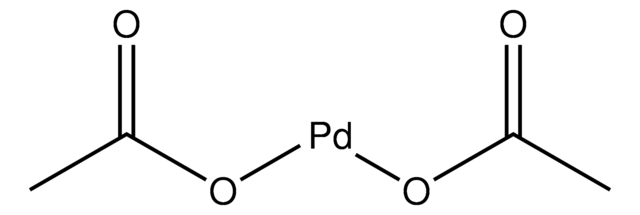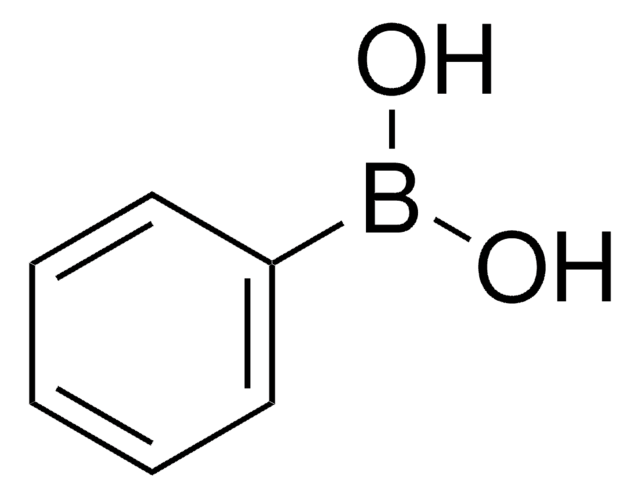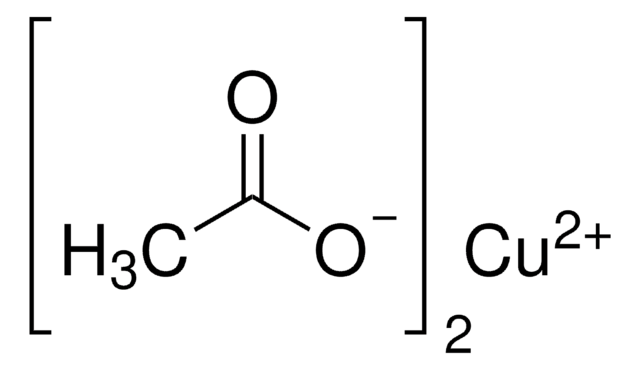451665
Copper(II) chloride
anhydrous, powder, ≥99.995% trace metals basis
Synonym(s):
Cupric chloride
About This Item
Recommended Products
grade
anhydrous
Quality Level
Assay
≥99.995% trace metals basis
form
powder
impurities
≤50.0 ppm Trace Metal Analysis
mp
620 °C (lit.)
density
3.386 g/mL at 25 °C (lit.)
application(s)
battery manufacturing
SMILES string
Cl[Cu]Cl
InChI
1S/2ClH.Cu/h2*1H;/q;;+2/p-2
InChI key
ORTQZVOHEJQUHG-UHFFFAOYSA-L
Looking for similar products? Visit Product Comparison Guide
General description
Application
Modified Markó′s aerobic oxidation of alcohols under atmospheric pressure with air or molecular oxygen at room temperature
accessory
Signal Word
Danger
Hazard Statements
Precautionary Statements
Hazard Classifications
Acute Tox. 4 Dermal - Acute Tox. 4 Oral - Aquatic Acute 1 - Aquatic Chronic 2 - Eye Dam. 1 - Skin Irrit. 2
Storage Class Code
8A - Combustible corrosive hazardous materials
WGK
WGK 3
Flash Point(F)
Not applicable
Flash Point(C)
Not applicable
Personal Protective Equipment
Choose from one of the most recent versions:
Already Own This Product?
Find documentation for the products that you have recently purchased in the Document Library.
Customers Also Viewed
Articles
Oxidation and reduction reactions are some of the most common transformations encountered in organic synthesis
The prevailing strategies for heat and electric-power production that rely on fossil and fission fuels are having a negative impact on the environment and on our living conditions.
Our team of scientists has experience in all areas of research including Life Science, Material Science, Chemical Synthesis, Chromatography, Analytical and many others.
Contact Technical Service











